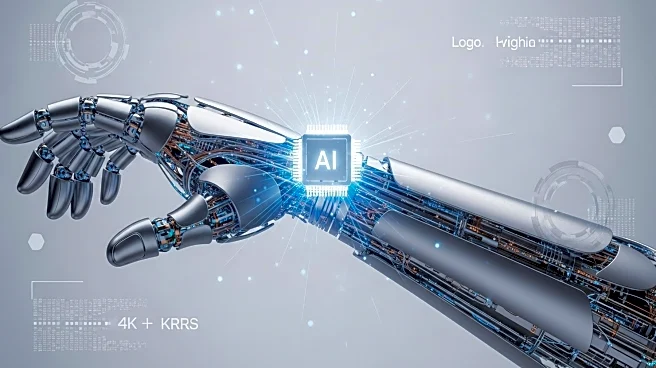What is the story about?
What's Happening?
R/GA, a prominent advertising agency, has transitioned back to independence after 23 years under the management of IPG, with backing from a private equity firm. Tiffany Rolfe, the chair and global chief creative officer, along with CEO Robin Forbes, invested in the company as part of this transition. This move has allowed R/GA to redefine its operational model, focusing on long-term investments, particularly in artificial intelligence (AI). Rolfe describes the shift as a significant opportunity to reshape the agency's creative processes and offerings. The agency is now prioritizing AI-driven creativity, aiming to create new experiences and products that leverage AI's capabilities. This transition comes at a time when the advertising industry is experiencing significant disruption due to the adoption of AI technologies.
Why It's Important?
The shift of R/GA to an independent status and its focus on AI represents a broader trend in the advertising industry towards embracing technological innovation. By moving away from the constraints of a holding company, R/GA can explore new creative avenues and redefine what it means to be a modern advertising agency. This change is significant for the industry as it highlights the growing importance of AI in creative processes, potentially setting a precedent for other agencies. The ability to integrate AI into creative work allows for more personalized and scalable solutions, which could lead to more effective advertising strategies. This transformation could impact how agencies operate, the type of talent they attract, and how they engage with clients.
What's Next?
R/GA plans to continue its focus on AI by developing new products and services that integrate AI into creative processes. The agency is working on launching a generative interface for a brand, which is expected to be unveiled soon. This initiative reflects R/GA's commitment to innovation and its desire to lead the industry in AI-driven creativity. As the agency continues to evolve, it will likely influence other agencies to adopt similar approaches, potentially leading to a broader industry shift towards AI integration. The success of R/GA's new model could encourage more agencies to explore independence and technological innovation as a means to stay competitive.
Beyond the Headlines
R/GA's transition highlights the ethical and cultural implications of AI in the creative industry. As AI becomes more integrated into creative processes, questions about the role of human creativity and judgment arise. The agency's approach to AI emphasizes the importance of human oversight and the need to balance technological efficiency with creative integrity. This shift also underscores the need for agencies to adapt to changing technological landscapes and to redefine traditional measures of success. The integration of AI could lead to new forms of collaboration between agencies and clients, as well as between agencies and consumers, fostering a more interactive and dynamic advertising environment.
















